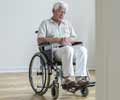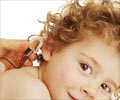Turning brain signals into speech sounds may help paralyzed patients who can't speak, reveals a new study.

TOP INSIGHT
Translating brain signals into speech sounds could improve quality of life for paralyzed patients who can't speak.
In this study, speech scientists and neurologists from UCSF recreated many vocal sounds with varying accuracy using brain signals recorded from epilepsy patients with normal speaking abilities. The patients were asked to speak full sentences, and the data obtained from brain scans were then used to drive the computer-generated speech. Furthermore, simply miming the act of speaking provided sufficient information to the computer for it to recreate several of the same sounds.
The loss of the ability to speak can have devastating effects on patients whose facial, tongue, and larynx muscles have been paralyzed due to stroke or other neurological conditions. Technology has helped these patients to communicate through devices that translate head or eye movements into speech. Because these systems involve the selection of individual letters or whole words to build sentences, the speed at which they can operate is very limited. Instead of recreating sounds based on individual letters or words, the goal of this project was to synthesize the specific sounds used in natural speech.
"Current technology limits users to, at best, 10 words per minute, while natural human speech occurs at roughly 150 words/minute," said Gopala K. Anumanchipalli, Ph.D., speech scientist, UCSF and first author of the study. "This discrepancy is what motivated us to test whether we could record speech directly from the human brain."
The research team took a two-step approach to solving this problem. First, by recording signals from patients' brains while they were asked to speak or mime sentences, they built maps of how the brain directs the vocal tract, including the lips, tongue, jaw, and vocal cords, to make different sounds. Second, the researchers applied those maps to a computer program that produces synthetic speech.
By breaking down the problem of speech synthesis into two parts, the researchers appear to have made it easier to apply their findings to multiple individuals. The second step specifically, which translates vocal tract maps into synthetic sounds, appears to be generalizable across patients.
The researchers plan to design a clinical trial involving paralyzed, speech-impaired patients to determine how to best gather brain signal data which can then be applied to the previously trained computer algorithm.
"This study combines state-of-the-art technologies and knowledge about how the brain produces speech to tackle an important challenge facing many patients," said Jim Gnadt, Ph.D., program director at the NIH's National Institute of Neurological Disorders and Stroke. "This is precisely the type of problem that the NIH BRAIN Initiative is set up to address: to use investigative human neuroscience to impact care and treatment in the clinic."
Source-Eurekalert
 MEDINDIA
MEDINDIA




 Email
Email








